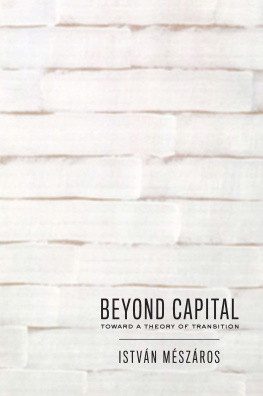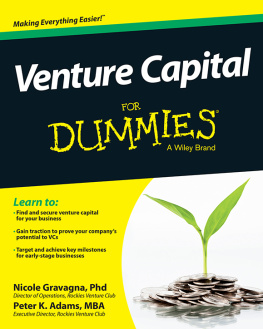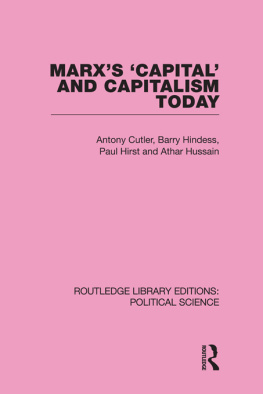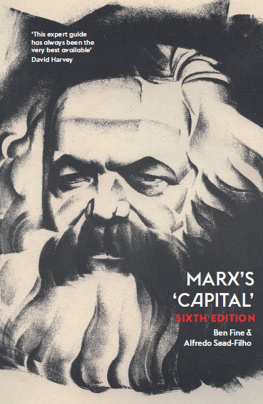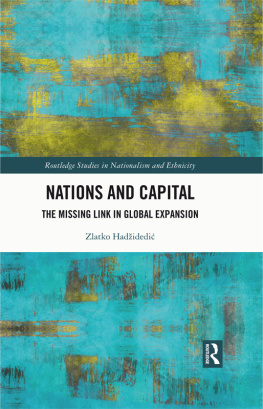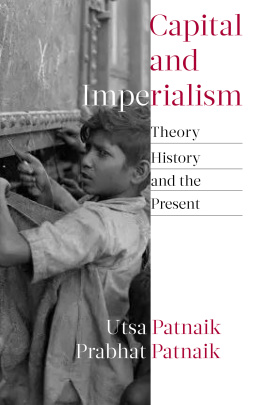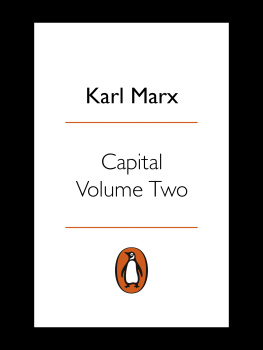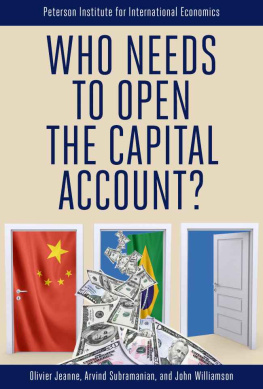
BEYOND CAPITAL
WORKS BY THE SAME AUTHOR
Satire and Reality, 1955
La rivolta degli intellettuali in Ungheria, 1958
Attila Jzsef e larte moderna, 1964
Marxs Theory of Alienation, 1970
The Necessity of Social Control, 1971
Aspects of History and Class Consciousness, ed., 1971
Lukcss Concept of Dialectic, 1972
Neocolonial Identity and Counter-Consciousness, ed., 1978
The Work of Sartre: Search for Freedom, 1979
Philosophy, Ideology and Social Science, 1986
The Power of Ideology, 1989
LAlternativa alla Societ del Capitale, 2000
Socialism or Barbarism, 2001
A educao para alm do capital, 2005
O desafio e o fardo do tempo histrico, 2007
The Challenge and Burden of Historical Time, 2008
The Structural Crisis of Capital, 2010
BEYOND CAPITAL
Towards a Theory of Transition
Istvn Mszros
MONTHLY REVIEW PRESS
New York
Istvn Mszros 1995, 2010
All rights reserved
First published in 1995 by The Merlin Press
Library of Congress Cataloging-in-Publication Data
Mszros, Istvn. 1930
Beyond capital: towards a theory of transition / by Istvn Mszros
p. cm.
Includes bibliographical references.
ISBN 978-085345-881-4 (pbk: alk paper)
1. Marxian economics. 2. Dialectical materialism. 3. Postmodernism
HB97.5.M39 1995 | 9541551 |
335.41dc20 | CIP |
Monthly Review Press
146 West 29th Street, Suite 6W
New York, NY 10001
www.monthlyreview.org
To Donatella
CONTENTS
By a dialectical advance, subjective self-seeking turns into mediation of the particular through the universal, with the result that each man in earning, producing, and enjoying on his own account is eo ipso producing and earning for the enjoyment of everyone else. The compulsion which brings this about is rooted in the complex interdependence of each on all, and it now presents itself to each as the universal permanent capital.
Hegel
The historic task of bourgeois society is the establishment of the world market, at least in its basic outlines, and a mode of production that rests on its basis. Since the world is round, it seems that this has been accomplished with the colonization of California and Australia and with the annexation of China and Japan. For us the difficult question is this: the revolution on the Continent is imminent and its character will be at once socialist; will it not be necessarily crushed in this little corner of the world, since on a much larger terrain the development of bourgeois society is still in the ascendant.
Marx
Preface
THE little corner of the world of which Marx spoke in 1858 is no longer a little corner: the severe problems of the capital systems increasing saturation cast their shadow everywhere. For capitals historical ascendancy is by now consummated also on that much larger terrain whose disconcerting existence Marx had to acknowledge in his letter to Engels (8th October 1858). Today we live in a world firmly held under the rule of capital, in an age of unfulfilled promises and bitterly disappointed expectations, defied for the time being only by stubborn hope.
To many people the present state of affairs seems to be fundamentally unalterable, corresponding to Hegels characterization of thinking and acting as right and properor rational in his senseonly in submission to the requirements of universal permanent capital. Moreover, this impression of fateful unalterability seems to be reinforced by the fact that one of the most often repeated political slogans offered by our decision makers as the justification of their actions is: there is no alternative. Such wisdom continues to be uttered without any concern for how bleak it would be if this proposition were really true. It is much easier to resign oneself to the finality of the predicament asserted in this blindly deterministic political slogan of our timeswithout even attempting to assess, let alone question, its grievous implicationsthan to devise the necessary challenge to it.
Curiously, however, the politicians who never tire of repeating that there is no alternative to the existing order of affairs do not hesitate to describe at the same time their own trade as the art of the possible. They refuse to notice the blatant contradiction between the traditional self-justification of politics, as the socially beneficial art of the possible, and the uncritically advocated resignation to the rule of capital to which, in their viewclaimed to be the only rationally tenable view in the real worldthere cannot be an alternative. For what on earth could be the meaning of politics as the pursuit of the socially commendable possible if the viability of any alternative to the imperatives of the ruling order is apriori excluded as worse than hopeless because impossible?
To be sure, the fact that so many decision makersin the East and West alikeembrace the idea that there can be no alternative to the prevailing determinations cannot be considered simply a corrigible personal aberration of those who advocate it. On the contrary, this bleak idea emanates from the present stage of development of the global capital system as such, with all its paralyzing interdependencies and objectively narrowing margins of action. For in the ascending phase of development of commodity society a whole range of meaningful alternatives could be contemplated (and successfully implemented) in the interest of profitable capital accumulation and expansion by the dominant (as a rule also empire-building) capitalist countries.
Things have drastically changed in this respect. For the age of globally saturated monopoly capital cannot tolerate, as far as the essentials and not the marginal trimmings are concerned, the practice of parliamentary political pluralism that once upon a time could provide the self-justification of reformist socialdemocratic strategies.
Not surprisingly, therefore, the recent demise of the parties of the left is not confined to the ignominious disintegration of the former (Stalinist) communist parties, in the East and West alike. In this regard it is far more significant (and paradoxically also hopeful) that the century-old socialdemocratic promise of instituting socialism little by little has conclusively demonstrated its illusory character with theby now quite unashamedly explicitabandonment of the original social and political aspirations of the movement. It is significant and hopeful, despite everything, because the precarious condition of democratic politics todayall too obvious in the unholy consensus concerning the wisdom of there is no alternative and its direct practical consequences, as exemplified for instance by the authoritarian legislative measures already experienced by the trades unionscan only be redressed by a radical extra-parliamentary mass movement. A movement which cannot arise without the working class being shaken out of the earlier successfully institutionalized illusion of establishing socialism little by little within the confines of self-reforming capitalism.
THE self-serving slogan of there is no alternative is often coupled with an equally tendentious clause of self-justification which proclaims that in the real world there can be no alternative to the advocated course of action (or inaction). This proposition is supposed to be a self-evident truth, automatically exempting all those who continue to assert it from inconveniencing themselves with the burden of proof.
Next page
